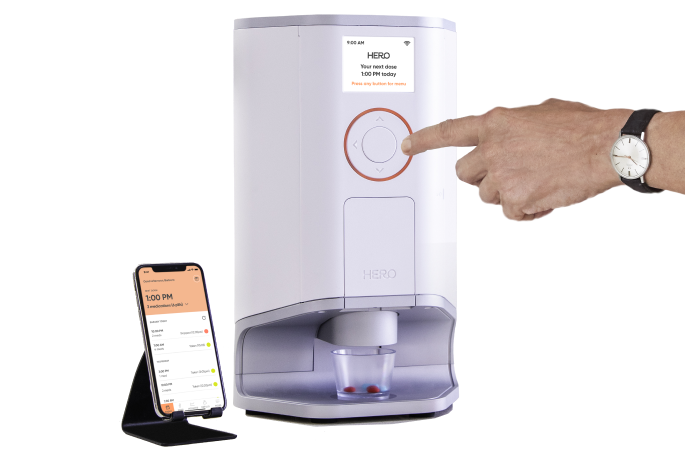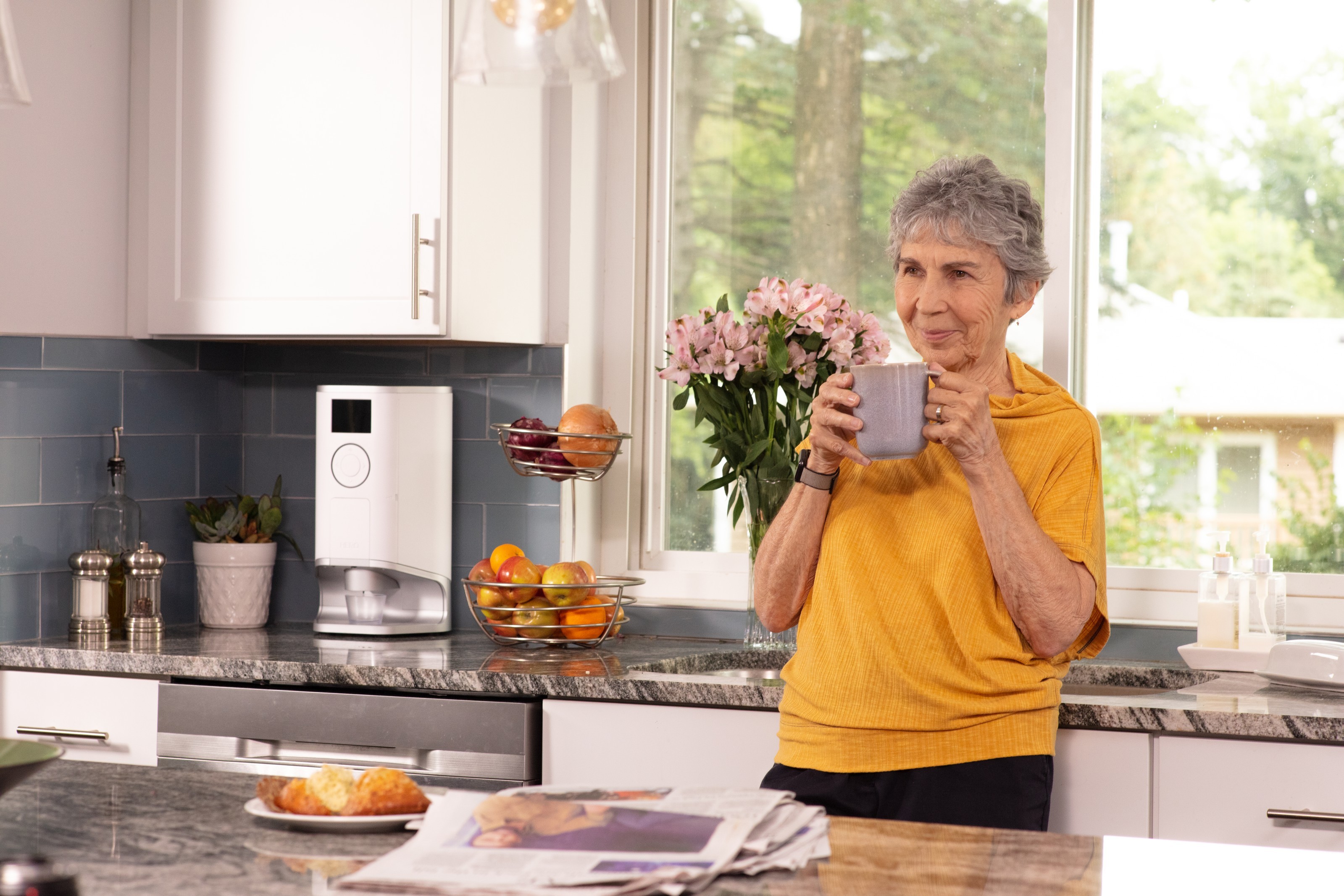6 Tips To Improve Your Quality of Life As A Caregiver

Are you a caregiver who loves being able to take care of your elderly parent but is feeling overwhelmed by the scope of your role? Or perhaps your partner or close friend spends a significant amount of their time taking care of a loved one and you see the strain it is taking on them... From feelings of isolation and frustration to anxiety and lack of sleep, the caregiver struggle is real (and widespread).
But there are things you can do to help! When a caregiver takes care of themselves, everyone benefits. Here are 6 ways you (or the caregiver in your life) can help manage the stress that comes with caregiving and improve your quality of life.
1. Take Care of Your Own Needs
Remember when you’re flying and they start the safety presentation by telling you to put on your own oxygen mask before helping someone else? Well, the same thing applies to caregiving. Only this time it’s not an oxygen mask but a whole world of human needs that should be attended to in order to truly take care of another person. For you this might mean exercising in the morning before assuming your caregiving role. Or it could be taking time out to journal each day and organize your thoughts. Whatever it is you like to do in order to relax and center yourself, make sure you work it into your day somehow. Believe us, your loved one will appreciate the happier, more relaxed version of “you.”
2. Stay Social
Caregiving can take a lot of your time, with little left over for seeing friends or getting out of the house. It might make you feel a little despondent when you are spending a lot of time with a very sick or elderly person and the last thing you feel like doing is going out. Whatever it is that is holding you back from socializing with people outside of the caregiving bubble, recognize it and work a way around it. Socializing is scientifically proven to help reduce stress. In fact, psychologist Susan Pinker is quoted as saying that, “Face-to-face contact releases a whole cascade of neurotransmitters and, like a vaccine, they protect you now, in the present, and well into the future.”
3. Remove the Stress of Medication Management
One of the more stressful aspects of caregiving for an elderly or sick person is the medication schedule. Considering that we are often dealing with a medication program that involves multiple doses of multiple medications at different times of the day, things can get intimidating. Make one mistake and you may be off to the Emergency Room. HERO is a device that can sort and dispense up to 10 different medications. After setting up your loved one’s schedule, sound and light notifications will let them know when it’s time for a dose - it takes the worry out of medication management. Possibly the best part of HERO is that it includes an app that caregivers are invited into so they can track adherence as well as get notified if the person they are caring for misses a dose when they aren’t physically present.
4. Find Ways to Have Quality Time Together
Caregiving might seem like hard work, but there are moments in between when you get to spend quality time with the person you are caring for and these can be incredibly rewarding. Depending on the mobility of the person you are looking after, this can range from a short walk or drive in nature, a game of cards, watching a movie together, or simply listening to a story they enjoy telling. While life can seem like a long list of tasks, this role won’t continue forever, but these moments can make a world of difference to you both.
5. Lean On Others
There’s no way around it: caregiving can be an incredibly lonely role to play. You may feel isolated, sad, frustrated, exhausted… And on top of it all, you may feel guilty about feeling those things! Don’t underestimate both the physical and emotional toll it can take on you, and make sure to lean on others for your own support. Grab a coffee with a friend and talk to them about how you feel (remember #1: Stay Social?!) Join a support group at your local hospital or nursing home and share and vent with people in a similar situation as yourself. Check out this guide from AARP on caregiver resources in your area.
6. Consider Respite Care
It may be hard to imagine leaving your loved one in the care of someone else for any period of time, but sometimes it’s exactly what you both need. Just as a mother of young children needs to get some headspace from time to time in order to come back refreshed and focused in her role as “mom," you will benefit from having some time away from your caregiver role. There are various options open to you for respite care, ranging from in-home respite (when a health care aide comes to your home to provide nursing services or simply companionship) to short term care nursing homes that can look after your loved one if you take some time off.
Complex med schedule? We solved it.
Hero’s smart dispenser reminds you to take your meds and dispenses the right dose, at the right time.

The contents of the above article are for informational and educational purposes only. The article is not intended to be a substitute for professional medical advice, diagnosis, or treatment. Always seek the advice of your physician or other qualified clinician with any questions you may have regarding a medical condition or its treatment and do not disregard professional medical advice or delay seeking it because of information published by us. Hero is indicated for medication dispensing for general use and not for patients with any specific disease or condition. Any reference to specific conditions are for informational purposes only and are not indications for use of the device.



